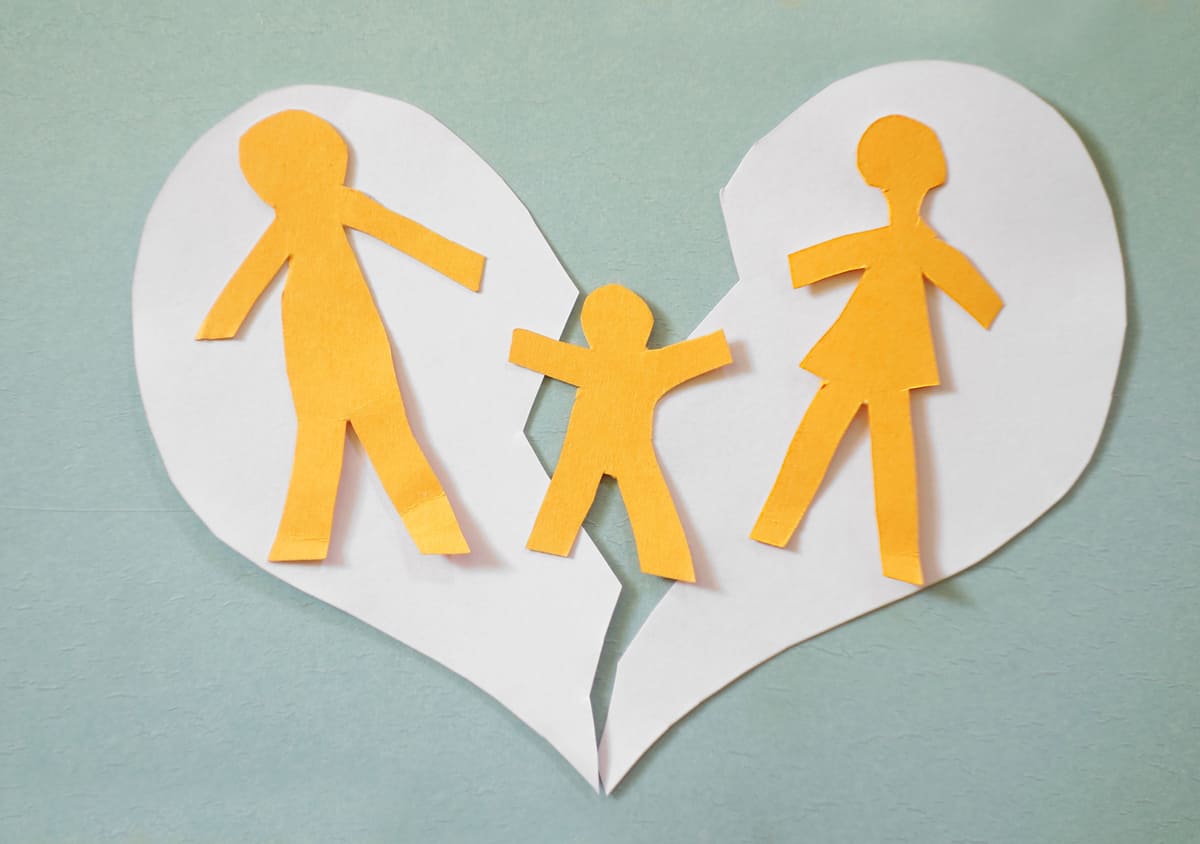We all wish that family life were like a Christmas movie: families continuously smiling and laughing, twinkling lights covered in artificial snow, garland wrapped around EVERYTHING and the scent of a beautiful dinner (complete with pie!) in the air. Sadly, that is often not the case. While we all wish for it never to happen, family estrangement is more common than we’d like to believe. Here’s the lowdown on what it is, how it affects family dynamics, and how to fix it.
Disclosure: I’m not a family counselor or doctor. This post is for informational purposes only and provides details on estrangement and family dynamics. If you have questions after reading, please consult your counselor, doctor, or psychologist for more details.
First, What Is Family Estrangement

Officially, family estrangement occurs when someone ends contact with one or more family members. And while that’s a simple definition, estrangement is far more complex. While the person who leaves the familial relationship may feel both upset and relieved at the same time, it’s just as hard for the family member or members on the other end.
Sadly, 27 percent of adults in America have cut off ties with a family member. Causes of estrangement are plentiful, too: parental death, illness, the birth of a child, marriage, divorce, or simply moving away. These family stepping stones and turning points cause a change in the family dynamic and bring about tension. If that wasn’t enough to make you sigh, over 10% of mothers claim to be estranged from one or more children.
It’s worth noting that these family changes alone don’t cause upset; it’s the emotional responses, reactivity, and triggers that do it.
Stages of Family Estrangement

When you suffer a significant loss, that outward expression of feelings and emotions is known as grief. When it comes to family estrangement, there’s no denying that grief is highly likely. As with death or any big loss, estrangement grief is very common and has its own set of stages:
- Denial – Many times, family members simply refuse to accept the fact that there are underlying issues.
- Anger – There may be unresolved anger and resentment toward the family members involved in the rift. By removing themselves from the family dynamic, pain, guilt, and suffering are put on the back burner.
- Bargaining – Thinking that the family will come back together, especially during the holidays, is a way of bargaining the new dynamic.
- Depression – It’s not an easy thing to accept that a member of the family has chosen to leave or distance themselves, especially if reconciliation isn’t on the bargaining table.
- Acceptance – It’s definitely not an easy thing to realize there’s no definitive timeframe for accepting the new family normal.
Common Reasons for Family Estrangement

Apart from the large stepping stones I wrote about above, there are plenty of other reasons family members become estranged:
- Mental Health Changes – For both parents and children, a change in mental health can affect family dynamics intensely. Depression, anxiety, trauma, substance abuse, and personality disorders are some of the common reasons. Additionally, if a child has to play parent when they’re younger or if an adult child suffers from mental health issues, estrangement can happen.
- Narcissism – An all-too-common reason for estrangement, narcissistic parents (ones that feel a deep desire to control everything about their adult children’s lives) and the amount of control they try to have over their children when grown can cause family rifts and change the dynamic.
- Abusive Parents – Emotional, physical, and sexual abuse as a child may cause the cutoff of a parent or the family member that caused it. On the other side of the coin, cutoffs can occur when a spouse or significant other doesn’t like the in-laws, so they force a break-up in the parent-child relationship.
- Toxicity – Unresolved tension and arguing between family members is another common reason for estrangement.
Family Estrangement and Second Chances

After everyone has had a chance to cool off, a second change may be possible depending on the reason for the estrangement. There is some positive research about it: 29 percent of children who are estranged from their mothers actually stay permanently estranged. Due to cycles of estrangement and reconciliation, almost ¾ of family estrangement cases have periods of getting the family back together.
The easiest way to reconcile is to accept the fact that you can’t control everything, especially the outcome. Accepting responsibility for the fact that you did play a part in the rift and estrangement is a good jumping-off point. Also, finding compassion for both yourself and the family member you’re not speaking to can only help the cause. Put yourself in their place for a moment and think about what you would do in their case.
The willingness to apologize is a biggie, too. Don’t put your defenses up; take responsibility for your side of the issue, and acknowledge their experiences. Also, if you’re the one with the toxic behaviors that a family member is unable to tolerate, be willing to make a positive change for both of your sakes.
Read Next:
Yikes! My Husband’s Children Don’t Like Me







